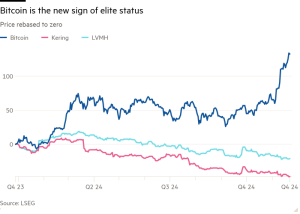UK ministers explore using break clauses in asylum housing contracts
UK ministers are keen to apply break clauses in contracts for asylum accommodation with outsourcers including Serco and Mears in an effort to renegotiate terms or end the deals.
Home Office ministers were “shocked” by the profits made by Serco, Mears and Clearsprings Ready Homes on multiyear contracts signed in 2019 and hope to use break clauses in 2026 either to revise the original terms or terminate, said two people briefed on their thinking.
“They [the companies] made way more than was originally envisaged because the asylum system became so out of control,” said one of the people. The Home Office was regularly bidding against other Whitehall departments for hotel and dispersal accommodation, driving up prices, the person added.
In 2019, the previous Conservative government overhauled the procurement of asylum accommodation. It said the changes would ensure vulnerable asylum seekers had access to support and set clear requirements for housing conditions, although human rights groups have continued to warn that some asylum accommodation remains unsafe.
In the same year, 10-year contracts for asylum accommodation were awarded to Serco in the Midlands, North West and east of England, Mears in the North East and Yorkshire and the Humber, and Clearsprings in the south of England.
The contracts, which contained break clauses after seven years in 2026, will cost the state about £4.6bn in total, according to government procurement data provider Tussell. Tussell’s figures also include Mears contracts in Scotland and Northern Ireland, and a Clearsprings contract in Wales.
The three companies do not specify the returns made on the contracts. But last year Clearsprings, whose principal source of business is asylum contracts with the Home Office, reported an increase in operating profit to £62.5mn from £1.9mn in 2019.
Its profit margin — the proportion of revenue that is profit — rose from about 3.5 per cent to 5.8 per cent in the same period.
In corporate filings last year, Mears said its contract brought in about £440mn in revenues — up £90mn on the previous 12 months — and accounted for 40 per cent of total revenues. In 2019, the company said it expected the contract to account for roughly 15 per cent of total revenues.
Since 2021, Mears’s profits have jumped 83 per cent to £47mn, and last year it warned that losing the asylum contract in 2026 was a “principal risk” to its business.
Serco won asylum contracts worth £1.9bn in 2019, the company’s largest-ever contract, and now accommodates more than 30,000 men, women and children.
It reported a 5 per cent increase in overall profits between 2022 and 2023 to £249mn, and this year noted that profit margins on UK and European work had increased from 3.4 per cent in 2022 to 6.8 per cent in the first half of 2024.
Serco operates across a number of sectors and in different countries, but when it increased its profit guidance last year, the company said the decision was in part because of “robust demand for immigration services”.
Joe Brent, analyst at investment bank Panmure Liberum, said UK asylum contracts had been a “source of profit growth” to Serco.
“If Labour succeeds in reducing the company’s level of returns considerably, it will reach a point where Serco goes elsewhere,” Brent said. “There aren’t many contractors that can deliver this at scale. It’s risky, intense, complex work, where capital is deployed and they have to deliver a return.”
The government has vowed to end the use of hotels and mass accommodation sites to house asylum seekers, but it has struggled to reduce reliance on hotels even as some large-scale sites, such as the Bibby Stockholm barge, are set to close.
Ministers have been spending more than £8mn a day on hotel accommodation for asylum seekers, and in recent weeks they have contacted hotel providers to procure extra spaces after a rise in small boat Channel crossings.
The Home Office did not respond to a request for comment.
Serco said it had won its contracts “following a competitive tender to ensure that value for money was achieved for the taxpayer”.
“We make low single-digit returns across our UK government business, and in the previous asylum accommodation contracts we lost more than £100mn,” it added, referring to contracts that ran between 2012 and 2019.
Mears said its profits related to performance across all activities, not just asylum contracts, and that its improved financial performance since 2021 had “come from an artificially low base because of the impacts of the pandemic”.
The company also said its contracts with the government stipulated caps on the level of profits the company could make and arrangements to return “surplus profit” to the client. It did not say how much profit if any it had returned to the Home Office since 2019.
“Mears has, over recent years, returned to operating margins that would be recognised as appropriate in the sectors in which it operates . . . in line with the historical performance of the group,” it added.
Clearsprings declined to comment.
#ministers #explore #break #clauses #asylum #housing #contracts






